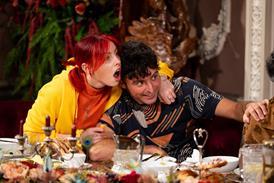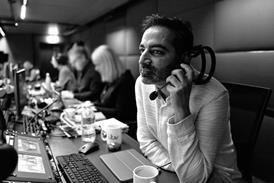Senior figures from the visual effects sector have raised concerns about the pipeline of TV and film VFX work, with Framestore chief executive William Sargent warning that “lumpy” demand for specialist post work is likely to fuel a trend of shorter contracts for freelance staff.
Framestore is understood to have shed around 120 jobs as work on movies such as Iron Man 3 has drawn to a close, while other major UK VFX houses, including MPC and Double Negative, have downsized their VFX teams after major contracts came to an end.
Sargent said: “MPC, Double Negative and Framestore have all had crews finishing, but ‘reducing the head count’ is the wrong expression; you can’t maintain a VFX crew between shows as it costs millions.
“Last year, the US studios slowed down the greenlighting of movies, and that’s caused a glitch in the supply of VFX work. But we have seven pictures booked over the next 15 months, in New York, London and Montreal.”
Prime Focus Broadcast VFX managing director Parvinder Bhatia said: “The current January to March quarter can be very quiet in broadcast VFX because producers are waiting for this year’s commissions,” while creative director at Jellyfish Pictures Phil Dobree, whose credits include Inside The Human Body, described last year as “more famine than feast”.
He said the problem had been compounded by UK TV drama productions not embracing VFX to the same degree as North American productions.
“Even when supply of VFX work comes back, the demand is going to remain lumpy,” added Sargent.
“We have to do more work over a shorter period of time, which means taking on more staff for shorter periods. I don’t feel that situation is going to go away.”


























No comments yet